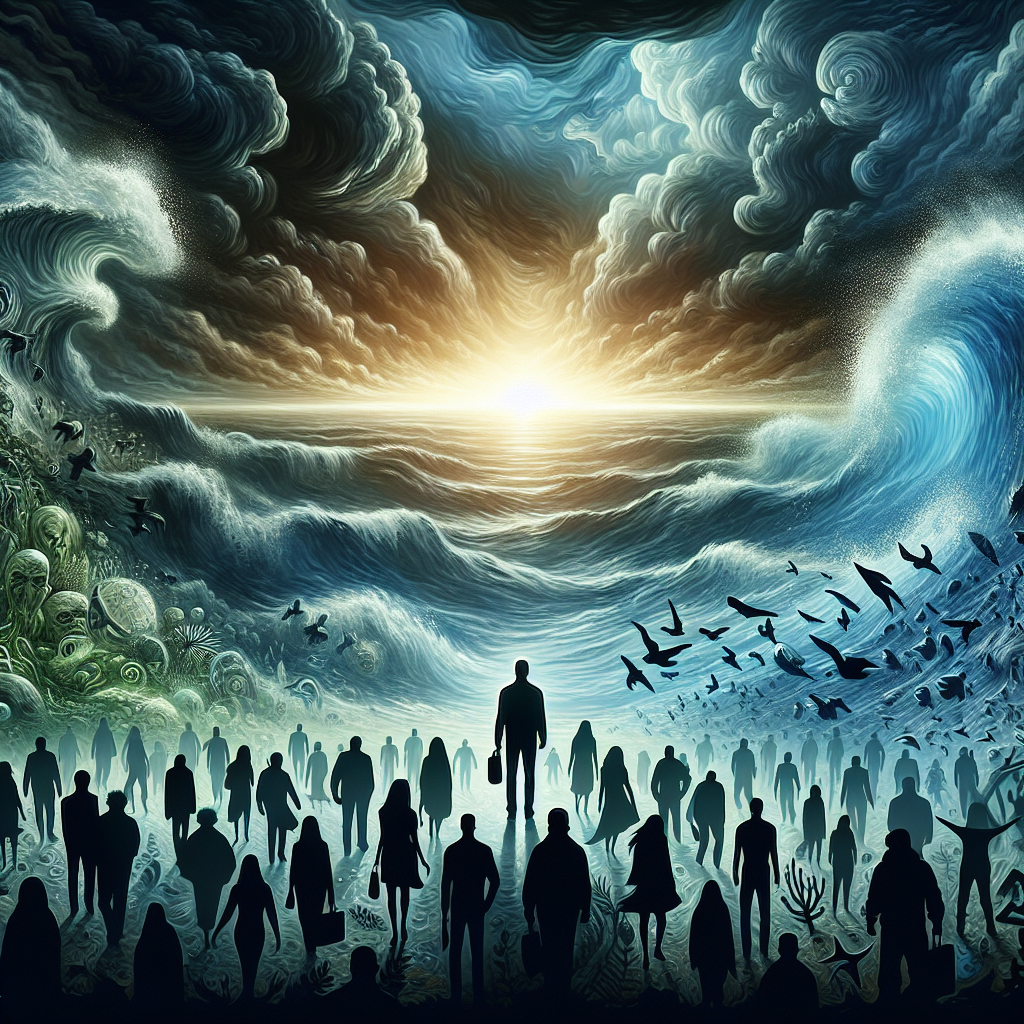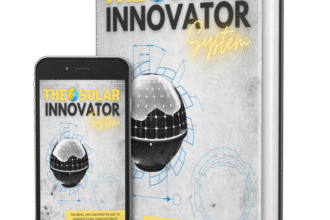Introduction: The Noise, the Headache, the Sigh
Let me be honest—climate change makes my head hurt sometimes. Maybe it’s the endless scrolling, maybe it’s the sharp photos of cracked deserts and flooded subway tunnels on the BBC homepage. Or maybe it’s just that everyone seems to have an opinion. Some say we’re doomed, others shrug and grab another iced latte. If you’ve ever thought: Why is this so confusing? Why can’t someone just tell me straight?—yep, I’ve been there too.
It’s not you. It’s the mess. We live in a world of too much information, not enough clarity, and (let’s admit it) way too much shouting. So, instead of adding more noise, let’s slow down and try to untangle this knot. Because really, the “why” behind climate change is not rocket science—it’s more like… watching your car’s windows fog up because the heater’s on too high. Manageable. If explained clearly.
1. Information Overload: The Firehose Effect
There’s this thing that happens when you type “climate change causes” into Google—your eyes glaze over. A million search results, half of them using words like “existential risk,” the other half pushing weird conspiracy theories about volcanoes. It’s like trying to drink from a firehose.
The confusing part? Not all those voices are wrong. Some are just too technical. Others are, well, loud for the sake of being loud. And so the impact is paralysis. (That “ugh, I’ll just close the tab” moment—I’ve done that too many times.)
What helps? Shrink the firehose to a garden hose. Pick a few reliable voices. For me it’s NASA’s climate page, and sometimes just a podcast that explains things casually—“How to Save a Planet” used to do that well, though it ended. Point is: less is more. One or two steady sources calm the storm.
And a little trick—if you can’t explain what you just read to your younger cousin, it probably wasn’t that clear in the first place.
2. The Jargon Problem (or: Why Does Science Sound Like a Foreign Language?)
Confession: I once googled “radiative forcing” at 1 a.m. and felt like I was reading alien poetry. Why can’t scientists just say: “The Earth is holding onto extra heat, like a too-thick comforter”? Wouldn’t that be easier?
Here’s why this matters: jargon makes ordinary folks feel like outsiders. It builds walls. You read “anthropogenic” and suddenly think, I don’t belong here. But—you do.
So how do you cut through? Translate, even badly. Greenhouse gases? Just think of Earth in a big hoodie it can’t take off. Feedback loops? Dominoes falling, only faster when ice melts. “Anthropogenic” = “we did it, humans.” Done.
Sometimes I write these in sticky notes on my fridge, half for myself, half for when my dad visits and says “So explain this warming thing again.”
3. Politics, Ugh
This one might be the hardest. Because—let’s be real—climate isn’t just about carbon. It’s about money, elections, protests, angry neighbors who think wind turbines are ugly, and that one uncle who insists it’s all a hoax. The science is clear (97% of climate scientists agree humans are driving it—yep, that number still stands). But politics? That’s a mud pit.
The impact? People stop trusting anything. You see lawmakers arguing, and suddenly the facts feel like opinions. That erodes hope, and without hope… why bother?
So—what now? Anchor yourself in the consensus. It’s like listening to an orchestra: sure, a few violins are squeaky, but the majority of the musicians are in sync. And the sync says: yes, humans are heating the planet. Period.
One quick check I use: if a headline makes me feel super angry or hopeless, I pause. I go read a calmer site (Climate.gov is one). Emotional manipulation is everywhere right now—especially on X/Twitter. Don’t fall for it.
4. The Scale Problem (aka: Feeling Like an Ant on a Sinking Ship)
Here’s the thing: climate news often feels huge. Oceans rising, coral reefs dying, kids marching in Fridays for Future rallies in Berlin. And then there’s me—sitting in my kitchen in sweatpants, wondering if turning off the lights even matters.
This mismatch between scale and self creates despair. You freeze up. Or worse, you ignore it completely.
But zoom in. Think about your block. Your town. Last year, my neighbor started a tiny community garden—barely bigger than two parking spaces. But it sparked conversations, reduced food waste, and somehow made the whole street feel more alive. Small ripples, but ripples nonetheless.
My rule of thumb? One global story, one local action. Wildfires in Canada? Okay, then I’ll spend Saturday biking instead of driving. It’s not balance exactly, but it keeps me moving instead of drowning.
5. The Emotional Weight (Fear, Guilt, and the “It’s Too Late” Feeling)
Sometimes it’s not the data at all—it’s the ache in your chest. I remember reading about 2023 being the hottest year on record, and my first reaction wasn’t curiosity, it was dread. Like—are we already too late? What’s the point?
That kind of fear is paralyzing. And guilt piles on: should I stop eating cheese, should I never fly again? The mind loops endlessly.
Here’s a softer approach: first, name the feeling. Say it out loud. “I’m scared.” It sounds silly, but it grounds you. Second, share it—because hiding climate grief only makes it heavier. Third, balance despair with hope. Search “climate solutions 2024” and you’ll see solar booming, EVs becoming mainstream, even unexpected allies (Texas of all places leads in wind power now).
And—this might sound corny—I keep a “hope folder” on my phone. Screenshots of good news. When doomscrolling gets too heavy, I scroll that instead.
Conclusion: Simplicity Is Power
So where do we land? The noise is real. The confusion, the bigness, the emotions—they’re not weaknesses, they’re signs you care. And caring is the beginning of clarity.
The heart of it is simple: humans are adding gases to the air that trap heat. That’s why the climate is changing. Not because of sunspots or secret volcanoes or destiny. Because of us. Which also means… because of us, change is possible.
Don’t chase perfection. Don’t drown in the flood of headlines. Pick a few good sources, translate the tricky words, separate science from politics, act locally, name your feelings. Repeat.
You’ll find clarity not by knowing everything, but by focusing on enough. And maybe—just maybe—you’ll feel that strange thing we don’t talk about enough in climate circles: hope.




